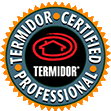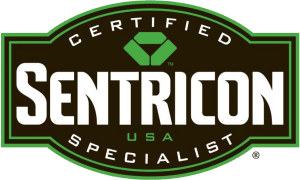Home sweet home; that is until your sanctuary is invaded by the marching hordes of ants. We’ve all been there—spying a line of tiny, determined critters in the kitchen, and the scrambling to find a quick solution that works. The professionals at iPest Solutions have seen it all and are here to put an end to this perennial ant problem with expert advice on how to keep these pests at bay.
Understanding Your Adversary
Before you can devise a plan to eradicate ants from your living quarters, it’s crucial to understand what you’re up against. There are more than 10,000 species of ants worldwide, with a significant proportion of them infiltrating homes in search of food, water, or shelter. The most common household ants include Argentine ants, odorous house ants, pavement ants, and carpenter ants. They’re not just a nuisance; some species can contaminate food, cause structural damage, or inflict painful bites.
To begin your ant-prevention crusade, start with prevention right from your doorstep. Seal all entry points, including cracks in walls and foundations, gaps in windows and doors, and utility line entrances. Store food and dispose of garbage properly to eliminate their food sources. But what about when preventive measures fail, and ants have already gained access to your home? This guide by iPest will walk you through several tactics to address the immediate infestation and fortify your defenses against future invasions.
DIY Ant Extermination Methods
Natural Remedies
If you’re someone who prefers to minimize chemical use in your home, natural remedies can be your first line of defense. Vinegar and soapy water sprays can disrupt ant trails, smelling strongly to deter newcomers, or wiping out stragglers. Lemon and cinnamon are also known to be repellant to ants, so placing these strategically in their path may redirect them away from your home.
Boric Acid
Boric acid is a low-toxicity mineral commonly used in making laundry detergents and eye washes. However, it’s a highly effective ant killer when used in baits or as a direct powder along ant paths. When ingested, boric acid damages their digestive systems, resulting in dehydration and death. Be cautious with boric acid, as it can be harmful if ingested by pets or young children. Keep it in areas inaccessible to your loved ones and use it sparingly.
Diatomaceous Earth
This fine powder consists of the fossilized remains of diatoms, a type of algae. To humans, it feels like harmless talcum powder, but to insects, it’s their worst nightmare. Diatomaceous earth works by absorbing the oils and fats from the insect’s exoskeleton, dehydrating them. Place this powder in crevices or directly in ant trails, and watch as the ant parade comes to a screeching halt.
Professional Pest Control
When ant troubles escalate beyond the scope of natural or DIY remedies, it may be time to call in the professionals. Companies like iPest Solutions are equipped with a range of treatment options tailored to the specific type of ant infestation you’re facing. Chemical sprays, baits, and granular pesticides are some of the tools in their arsenal to eradicate not only the visible ants but also their unseen nests.
The expertise of a pest control professional is invaluable in identifying the precise ant species and understanding their behaviors and lifecycles. This knowledge is the key to a successful eradication and prevention strategy for your particular ant issue. What’s more, ongoing prevention and monitoring programs offered by pest control companies can give you peace of mind that your home is ant-free, and remain that way.
Long-Term Ant Control Strategies
Even after a professional ant control intervention, the battle isn’t over. To ensure long-term victory over ants, iPest recommends several post-extermination practices to keep them out of your home:
Eliminate Food and Water Sources
Regular cleaning and mindful food storage are essential. Ants will exploit any available food, especially sweet, sticky, and greasy substances. Keep all pantry items tightly sealed and counters free of crumbs and spills. Invest in airtight containers for your kitchen storage to maintain a food-safe environment that’s hostile to ants.
Keep the Perimeter Clean
The area around your home can be a haven for outdoor ant colonies. Trim vegetation back, remove leaves and debris, and keep gutters clean to limit ant habitats near your home.
Address Dampness
Just like humans, ants need water to survive. Fix any leaks, keep your plumbing in good working order, and use a dehumidifier in damp areas to discourage ants from setting up shop in your home.
Regular Home Inspections
An inspection of the perimeter, walls, and foundational areas of your home at least once a year can help identify and remedy potential entry points before they become ant thoroughfares.
Ants are persistent and resourceful insects that, despite their diminutive size, can pose a significant challenge for homeowners. By taking a proactive approach that includes natural deterrents, DIY eradication methods, professional intervention, and vigilant prevention, you can defend your home against ant invasions. Remember to address both the immediate infestation and the environmental factors that attract ants in the first place. And if you find yourself overwhelmed, don’t hesitate to reach out to the experts at iPest Solutions for help.
Protecting your home from ants is not just about eradicating the immediate problem; it’s about establishing a new norm where your living space is inhospitable to these pests. With persistence and the right tools, you will reclaim your territory and enjoy your home without the unwelcome company of these six-legged intruders.







